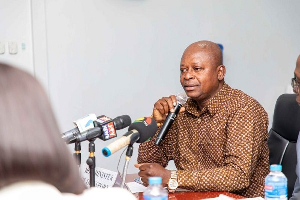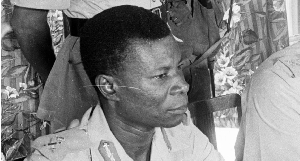Accra, Feb 4, GNA - Representatives of 53 African countries ended a Preparatory Conference on the World Summit on the Information Society (WSIS) on Friday, pledging to forge a common front to build an information society, which is inclusive of all stakeholders including government, private sector, civil society as well as international organizations.
In a communiqu=E9 issued at the end of their three-day conference, delegates also made a recommendation for the adoption of African languages in the design and use to speed up the process of bridging the digital divide and preserve the cultural and linguistic diversity in the Information Society.
The delegates stressed that Africa with its high illiteracy rate and vulnerable populations should develop specialised centres and relevant materials to overcome these major handicaps.
The communiqu=E9 underscored that building shared information and knowledge society would contribute to achieving the Millennium Development Goals to improve quality of life and eradicate poverty. It also urged the continent's leaders to pay attention to human resource training and education for the information society with emphasis on the youth and women to increase the contribution to the global knowledge economy.
The participants reinforced their belief in Digital Solidarity Fund and other existing mechanisms, saying these should be explored to face financing challenges of implementing the action plan. There were also agreements on Internet Governance calling for the establishment of appropriate regulatory frameworks to deal with issues relating to SPAM, cyber-criminality and privacy among others. The three day Conference, which had the theme: "Access: Africa's Key to an Inclusive Information Society", adopted a common position of the Continent for the second phase of the WSIS to be held in Tunis in November 2005.
More than 1,000 participants from academia, government, civil society and international organizations took part in the Conference. In a closing speech Senior Minister, Mr Joseph Henry Mensah asked for genuine commitment from the developed world to enable Africa to participate fully in the information society.
He urged civil society to remain resolute in the fight to make the continent a major player and bridge the digital divide. Dr K.Y. Amoako, Executive Secretary of Economic Commission for Africa (ECA), said the outcome of the Conference should re-energise the continent to embrace the information society.
He said the ECA would offer its support to the ministerial committee to facilitate the development of ICT on the continent.
General News of Friday, 4 February 2005
Source: GNA












